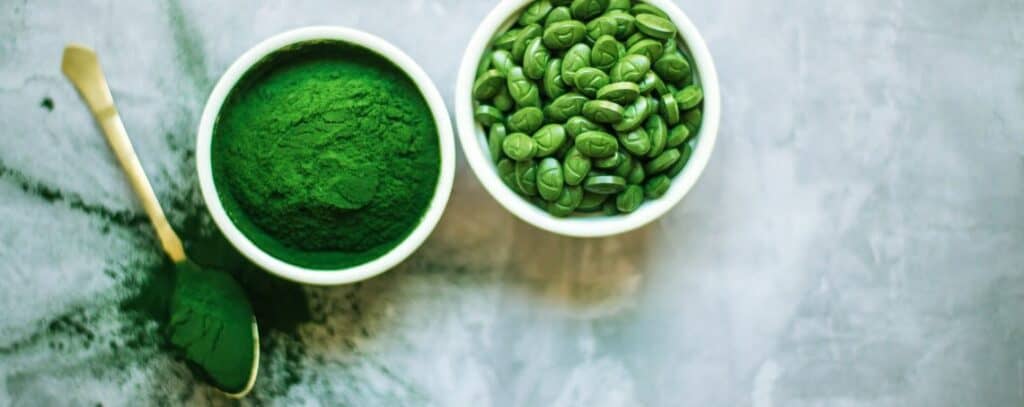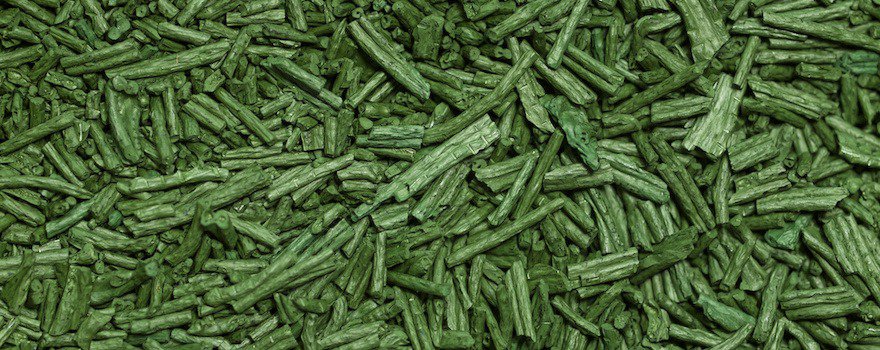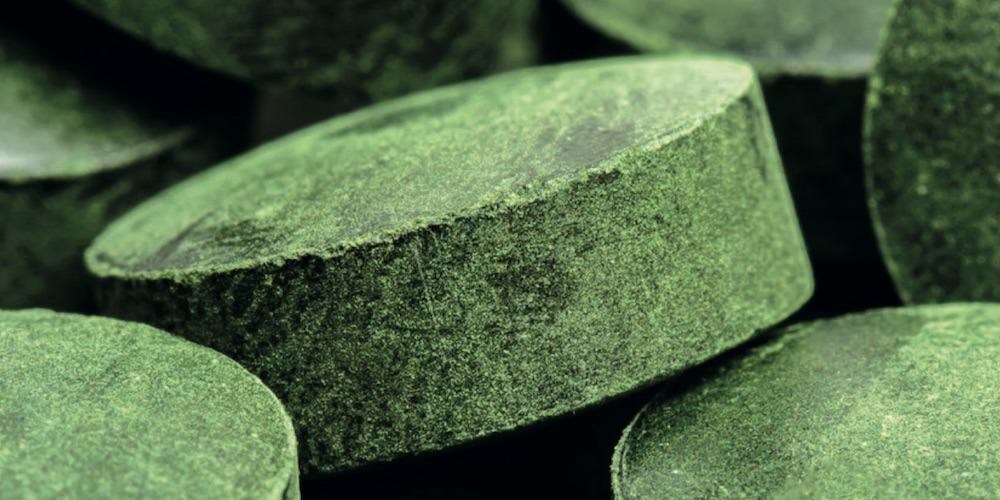What are the dangers of spirulina?
Warning from the magazine 60 million consumers about the origin of spirulina
The magazine 60 million consumers published in November 2019 a special issue dedicated to dietary supplements, highlighting their lack of effectiveness and side effects. A focus specifically warns about the consumption of microalgae including spirulina.
Indeed, even though a number of scientific studies have been conducted both on animals and humans, the magazine considers the number of clinical proofs of spirulina’s effectiveness to be promising but still insufficient.
More importantly, it warns about its methods and places of production, which can be responsible for serious contaminations. Since spirulina absorbs metals contained in water and soil (if it comes from a lake) where it grows, it can become toxic if its environment is polluted – heavy metals, hydrocarbons…
For example, in 2008, a study revealed the presence of lead and mercury in Mexican spirulina. It is therefore crucial to be extremely vigilant about its origin, and if possible, choose French farmed spirulina which is the most legally regulated.
Also read Where to buy quality spirulina?
Side effects and precautions
ANSES, the French Agency for Food, Environmental and Occupational Health & Safety, conducted a study between April 2014 and February 2017 entitled “Risks related to the consumption of dietary supplements containing spirulina”. This study covers 49 reports of side effects possibly linked to the consumption of dietary supplements containing spirulina.
The findings of the study, conducted within the national nutrivigilance system, establish certain side effects such as digestive disorders, allergies, as well as some muscle and liver issues.
It also appears that products containing spirulina can be contaminated by cyanotoxins, bacteria or metallic traces like lead, mercury or arsenic.
But aside from contamination risks related to its origin, spirulina is not dangerous at low doses.
To ensure the consumption of quality spirulina, ANSES also recommends favoring short supply chains, which are better controlled.

Buying organic and traceable spirulina: my selection
To avoid any risk, I recommend the organic spirulina from Nutri&Co laboratory. Its traceability is ensured up to the farming facility, and it is certified organic agriculture.
The bacteriological and heavy metals analyses are freely available on the laboratory’s website.
I recommend this spirulina especially because the quality/price ratio is particularly interesting (€0.04 per tablet, which is below the market average).
It is dried and cold-compressed and contains 17% phycocyanin, its active ingredient.
I really like Nutri&Co: it is a truly expert French supplement brand (see their blog for instance) that eliminates intermediaries to offer high-quality products at a reasonable price.
❤ I like : The excellent quality/price ratio, organic certification, and low-temperature drying.
★ Customer reviews: 4.7/5
☞ Quantity: 500 tablets / 3 months of treatment
✔ Our test: Promo codes Nutri&Co
Side effects and misconceptions
Contraindications
- Its stimulating effects can affect sleep in some people, so it is recommended not to consume it in the evening.
- People suffering from phenylketonuria should not consume spirulina because it contains phenylalanine.
- Gastrointestinal issues are reported by some users. If these symptoms persist, it is advisable to stop the treatment and consult a doctor.
- It is not recommended for pregnant or breastfeeding women, or for people with hemochromatosis and renal failure.
Danger of spirulina for the liver
The liver is a vital organ that acts as a filter within our body. During digestion, it collects and eliminates toxins present in our diet: preservatives, alcohol, pesticides… In short, it detoxifies our organism.
When our liver works too much, our metabolism slows down. Spirulina and its high iron content can accelerate transit and cause bloating due to over-stimulation of the liver. Some side effects such as constipation may then occur.
In case of hemochromatosis, a relatively rare disease characterized by excess iron and the liver’s inability to eliminate it, spirulina is not recommended. Because if the blood is overloaded with iron, it can cause hepatic, pancreatic, or joint problems.
It is also advised for individuals with digestive or hepatic issues not to consume high doses of spirulina.
One of the dangers of spirulina is also linked to its high protein content. Indeed, protein overload may overstrain the kidneys and affect people with kidney failure.
To be avoided in case of phenylketonuria
Spirulina is strongly not recommended for people with phenylketonuria, a rare genetic disease. As it contains phenylalanine, an amino acid not assimilated by individuals with phenylketonuria, it may contribute to its accumulation in the nervous system.
Spirulina and pregnant women
Some articles present spirulina as dangerous for pregnant women. Even though there is no proven danger in this specific case, it is always advised to consult medical advice.
Because spirulina is a rather suitable food for pregnancy and breastfeeding. Indeed, its nutrients support the body, which is more stressed than usual in pregnant women, and limit deficiencies.
Particularly in terms of the iron needs during pregnancy, especially in the last 6 months, which can be met through its consumption.

Spirulina and thyroid
The thyroid is a gland located in the neck. It secretes hormones whose action regulates the proper functioning of the body: temperature, weight, heart rate, nervousness… Hyperthyroidism is when it produces too many hormones and, conversely, hypothyroidism is when there is insufficient hormone production.
Contrary to some misconceptions, spirulina does not cause thyroid dysfunction and is therefore safe, as it is a cyanobacterium developing in alkaline or freshwater lakes, not a marine algae. It therefore does not contain iodine, a chemical element that, in excess, can cause hyperthyroidism issues.
As it strengthens physical weaknesses caused by thyroid problems and stimulates the immune system, it is rather recommended in such cases.
Known for its detoxifying and revitalizing benefits, it also regulates metabolism, protects the intestinal flora, and reduces mood disorders that some individuals with thyroid issues experience daily.
How to consume well to limit the risks of spirulina
Observe the dosage
⚖️ It is recommended to consume 2 to 5g per day of spirulina, gradually increasing the doses. However, athletes may take up to 10g per day during intense physical preparation.
⏳ It is better to consume it in the morning and at noon, just before or during meals. Three-month courses are recommended to better appreciate the benefits.
💊 In tablet form: if the tablets or capsules weigh 500 mg, up to 10 per day
🥄 In powder form: 2 teaspoons or 1 tablespoon per day
🥗 In flakes: 1 teaspoon per day
Spirulina, vegan diet and vitamin B12
Warning: spirulina is not a superfood capable of meeting all the body’s needs in the case of a vegan diet.
Indeed, when following a vegan diet, one does not benefit from vitamin B12 found in animal-origin foods. Even though spirulina contains a form of vitamin B12, it is not bioavailable and is even suspected of interfering with the absorption of true vitamin B12.
It is therefore necessary in such cases to be prescribed a specialized dietary supplement by a doctor.
Consume a quality product from a controlled origin
With all these warnings regarding its origin and production methods, one would prefer to opt for organic spirulina. However, it does not yet exist! In France, the cultivation of spirulina does not meet the criteria for organic farming, as it depends on the marine algae specifications – even though it is a cyanobacterium growing in freshwater.
Through an equivalence system, organic spirulina is sourced from other countries, but it has been noted that its production conditions are much less strict and qualitative than in France.
Therefore, we must favor the best-controlled supply chains by public authorities. This ensures compliance with French regulations, product traceability, and a clear identification of the manufacturer.
The quality control of the production waters of this cyanobacterium and the mastery of the spirulina production processes by the manufacturer are also guarantees of quality.




